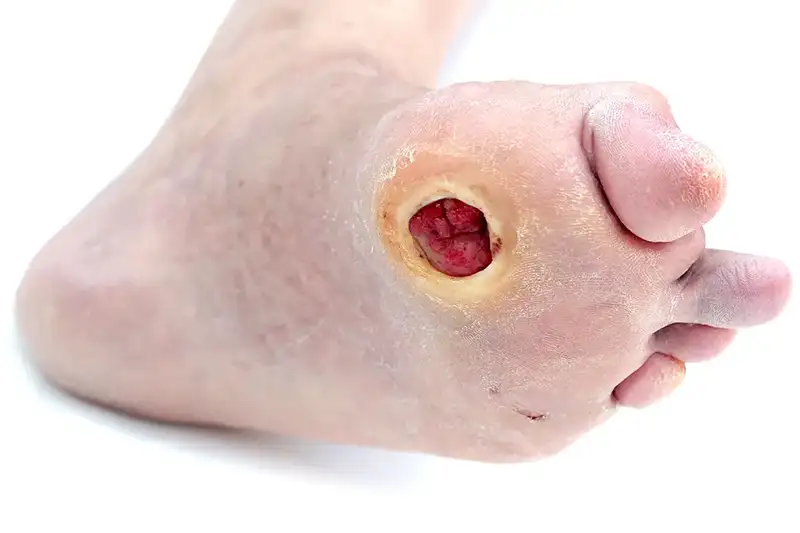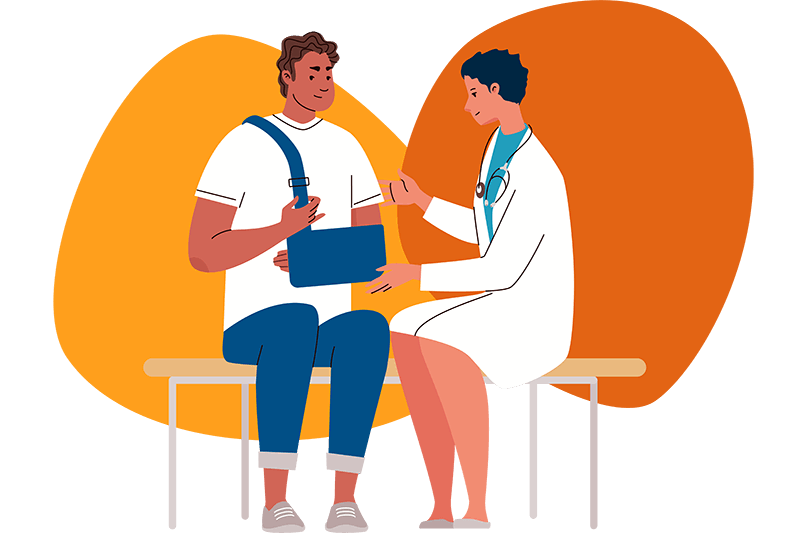What Are Diabetic Wounds?
Diabetic wounds are slow-healing ulcers that develop due to the impaired circulation and nerve damage caused by diabetes. These wounds most commonly affect the feet and lower legs and can lead to severe infections if left untreated.
Causes of Diabetic Wounds
Diabetic wounds result from a combination of factors, including:
- Poor circulation: Reduced blood flow slows healing and increases infection risk.
- Neuropathy (nerve damage): A lack of sensation prevents early detection of cuts, blisters, or sores.
- High blood sugar levels: Elevated glucose impairs immune function and delays tissue repair.
Symptoms of Diabetic Wounds
Early signs of diabetic wounds include:
- Redness, swelling, or warmth around a sore
- Drainage or pus from an open wound
- Pain or tenderness (though some individuals may not feel pain due to neuropathy)
- Blackened or dead tissue indicating gangrene or a severe infection
Treatment Options for Diabetic Wounds
At PWTT, we offer cutting-edge treatments tailored to each patient’s condition, including:
- Assessment of lower extremity vascular (blood) flow
- Debridement: Removing dead or infected tissue to promote healthy regrowth.
- Advanced Wound Dressings: Specialized dressings to maintain an optimal healing environment.
- Skin Substitutes & Grafts: Bioengineered epidermal or dermal-epidermal skin substitutes to aid wound closure.
- Negative Pressure Wound Therapy (NPWT): Vacuum-assisted therapy to improve blood flow and reduce infection risk.
- Use of platelet derived growth factor on appropriate diabetic wounds
FAQs About Diabetic Wounds
How can I prevent diabetic wounds?
Regular foot inspections, proper footwear, and managing blood sugar levels can significantly reduce the risk of ulcer development.
When should I seek medical attention for a diabetic wound?
If you notice an open sore, redness, swelling, or signs of infection, seek immediate care to prevent serious complications.
Can diabetic wounds lead to amputation?
Yes, untreated or infected diabetic wounds can lead to severe complications, including the need for amputation. Early treatment is crucial.
At PWTT, we are committed to delivering expert wound care and innovative treatments to help you heal faster live healthier.


